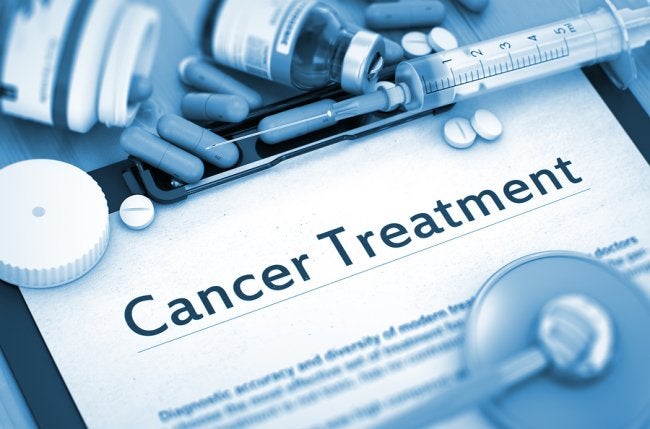-
Don’t Let These Myths Scare You Away from a Clinical Trial

Cancer treatment has come a long way in recent decades. It’s more effective than it used to be, but sometimes, certain cancers just don’t respond the way urologists would like. Some patients may be good candidates for clinical trials if they haven’t responded well to established medical interventions. If your doctor suggests that you consider a clinical trial, you should become fully informed before making a decision. The doctor can help you learn the truth behind the misconceptions about clinical trials.
Myth: Clinical trials are too risky and dangerous.
Every medical treatment has the potential for side effects and complications—whether you’re taking aspirin or undergoing surgery. Do talk to your doctor about the potential risks of the clinical trial you’re considering. However, remember that clinical trials are governed by a strict set of oversight requirements. They’re carefully designed, administered, and monitored so that they can be as safe as possible for the participants.
Myth: Cancer patients may be given faux drugs in clinical trials.
Clinical trials do use placebos, which are pills that do not contain an active ingredient. This is done for the purpose of evaluating the true effectiveness of the treatment. However, placebos aren’t generally used for patients with serious illnesses like cancer. Placebos are never used if their use would place a patient at risk. You may also be reassured to know that you can ask in advance if the clinical trial would involve a placebo.
Myth: If I join a clinical trial, I won’t be able to leave for other treatment.
You have the right to direct your own medical care. Even if you sign up for a clinical trial and begin receiving treatment, you can decide to drop out of the study at any time. The researchers may ask for your permission to continue monitoring you for possible long-term effects.
Urology Associates, P.C. is committed to giving our patients the advanced care they need to fight their diagnosis. Our Advanced Therapeutics Center administers clinical trials for cancer treatment in Tennessee, and many of the medical interventions used have already been FDA-approved. Call (855) 901-1338 to request a consult with our prostate cancer experts.
-
Clinical Trials for Cancer: A Patient’s Guide to Making the Decision

Cancer treatment for kidney, bladder, and prostate cancers can be effective when the disease is diagnosed in the early stages. As the cancer cells multiply and spread beyond the point of origin, eliminating the cancer becomes increasingly difficult. Sometimes, patients with advanced cancer have already gone through surgery, and multiple rounds of chemotherapy and radiation therapy, only to discover that they still have cancer and they are out of treatment options. As distressing as this is, there may be still be hope. A clinical trial gives patients another chance to become cancer-free.
Possible Benefits of Clinical Trials
A clinical trial tests emerging treatments that aren’t yet available to non-participants. Although there are no guarantees in medicine, it’s possible that this new treatment will help patients live longer . Even if the treatment doesn’t work, some patients take heart in the fact that they’ve contributed to cancer research, and that others may benefit from their contribution.
Potential Risks of Clinical Trials
The main risk with a clinical trial is that it won’t help. It’s also possible for the emerging cancer treatment to cause mild to severe side effects that may reduce quality of life. Patients will likely need more visits to the urologist’s office, and these will subtract from the patients’ remaining time with his or her family.
Common Eligibility Criteria for Clinical Trials
Not everyone is eligible to join a clinical trial. The right set of circumstances has to exist. First, there must be a clinical trial available that involves a potential treatment for that particular type of cancer. That trial must still be accepting new study participants. Next, the patient must meet the specific eligibility criteria for that clinical trial. Some of the most common criteria are:
- Being within a certain age range
- Being diagnosed with a specific type and stage of cancer
- Having a certain medical history
- Demonstrating a specific health status
At Urology Associates, P.C., our Advanced Therapeutics Center is committed to saving lives with cutting-edge therapies, including those offered in clinical trials. Here, you’ll receive in-depth, personalized guidance on the cancer treatments available in Tennessee. Call (855) 901-1338 for an appointment to discuss whether a clinical trial may be the right choice for you.
Recent Posts
categories
- Uncategorized
- Bladder Cancer
- Women's Sexual Health
- MonaLisa Touch
- Urology
- Urologist
- Erectile Dysfunction
- Kidney Cancer
- Incontinence
- Prostate
- MonaLisa Touch Laser Treatment
- Kidney Stones
- Urinary Tract Infections
- Event
- Sexual Dysfunction
- Testicular Cancer
- Prostate Cancer
- Urology Surgery Center
- urinary incontinence
- vaginismus
- noncoital pain disorder
- Hypoactive Sexual Desire Disorder
- Infographic
- provenge
- Xofigo
- robotic surgery
- hormone replacement
- diabetes
- renal cell carcinoma
- pelvic pain
- hematuria
- sexual health
- chronic testicular pain
- premature ejaculation
- Men's Health Clinic
- Dr. Melvin Seard
- Interstitial Cystitis
- vasectomy
- overactive bladder
- vaginal atrophy
- nocturia
- bladder infections
- urethral strictures
- Acute Epididymitis
- low sex drive
- circumcision
- pelvic floor dysfunction
- Peyronie's Disease
- prostatitis
- female sexual dysfunction
- varicocele
- difficult urination
- low libido
- PSA levels
- male fertility
- penile prosthesis
- prostatic intraepithelial neoplasia
- male infertility
- estrogen levels
- nurse navigator
- stress urinary incontinence
- vaginal yeast infection
- elevated psa
- painful sex
- adult circumcision
- epididymitis
- OAB
- kidney infection
- penile cancer
- pelvic organ prolapse
- Vasectomy Reversal
- bone health
- cystectomies
- clinical trials
- bloody urine
- Advanced Therapeutic Center
- WISH MedSpa
- neurogenic bladder
- WISH Team
- prostate biopsies
- BPH
- fecal incontinence
- lithotripsy
- osteoporosis
- kidney cysts
